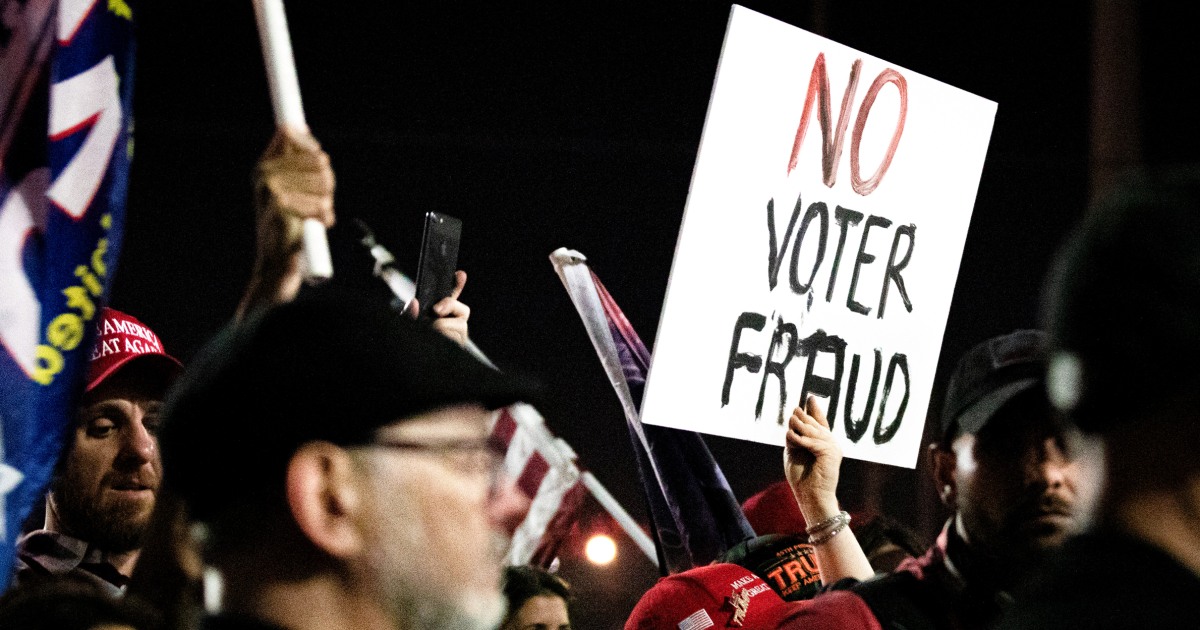Shaw v. Reno (1993)
Author: Sandra Day O’Connor
Redistricting legislation that is so bizarre on its face that it is unexplainable on grounds other than race demands the same close scrutiny as other state laws that classify citizens by race.
Thornburg v. Gingles (1986)
Author: William Brennan
The critical question in a claim under Section 2 of the Voting Rights Act is whether the use of a contested electoral practice or structure results in members of a protected group having less opportunity than other members of the electorate to participate in the political process and elect representatives of their choice.
Karcher v. Daggett (1983)
Author: William Brennan
Parties challenging apportionment legislation bear the burden of proving that population differences among districts could have been reduced or eliminated by a good-faith effort to draw districts of equal population. If the plaintiffs carry their burden, the state bears the burden of proving that each significant variance between districts was necessary to achieve a legitimate goal.
City of Mobile v. Bolden (1980)
Author: Potter Stewart
Racially discriminatory motivation is a necessary ingredient of a Fifteenth Amendment violation. The Amendment does not entail the right to have African-American candidates elected but prohibits only purposefully discriminatory denial or abridgment by government of the freedom to vote on account of race, color, or previous condition of servitude.
Buckley v. Valeo (1976)
Author: Per Curiam
Restrictions on individual contributions to political campaigns and candidates did not violate the First Amendment. However, restrictions on independent expenditures in campaigns, limits on expenditures by candidates from their personal or family resources, and limits on total campaign expenditures violated the First Amendment. Also, any appointee exercising significant authority pursuant to the laws of the United States is an “Officer of the United States” and must be appointed in the manner prescribed by the Appointments Clause.
Richardson v. Ramirez (1974)
Author: William Rehnquist
A state did not violate the Equal Protection Clause in disenfranchising convicted felons who have completed their sentences and paroles.
Harper v. Virginia Board of Elections (1966)
Author: William O. Douglas
A state violates the Equal Protection Clause of the Fourteenth Amendment whenever it makes the affluence of the voter or payment of any fee an electoral standard. Voter qualifications have no relation to wealth nor to paying or not paying this or any other tax.
South Carolina v. Katzenbach (1966)
Author: Earl Warren
Congress, as against the reserved powers of the states, may use any rational means to effectuate the constitutional prohibition of racial voting discrimination. The Fifteenth Amendment is self-executing and supersedes contrary exertions of state power. Its enforcement is not confined to judicial invalidation of racially discriminatory state statutes and procedures or to general legislative prohibitions against violations of the Amendment.
Reynolds v. Sims (1964)
Author: Earl Warren
The Equal Protection Clause requires substantially equal legislative representation for all citizens in a state, regardless of where they reside. Legislators represent people, rather than areas, and weighting votes differently according to where citizens happen to reside is discriminatory.
Wesberry v. Sanders (1964)
Author: Hugo Black
The constitutional requirement that representatives be chosen “by the people of the several states” means that, as nearly as is practicable, one person's vote in a congressional election must be worth as much as another person's vote.
Baker v. Carr (1962)
Author: William Brennan
Prominent on the surface of any case held to involve a political question is found a textually demonstrable constitutional commitment of the issue to a coordinate political department, a lack of judicially discoverable and manageable standards for resolving it, the impossibility of deciding without an initial policy determination of a kind clearly for non-judicial discretion, the impossibility of a court's undertaking independent resolution without expressing lack of the respect due coordinate branches of government, an unusual need for unquestioning adherence to a political decision already made, or the potentiality of embarrassment from multifarious pronouncements by various departments on one question. More specifically, an equal protection challenge to a legislative apportionment is not a non-justiciable political question.
Gomillion v. Lightfoot (1960)
Author: Felix Frankfurter
Even the broad power of a state to fix the boundaries of its municipalities is limited by the Fifteenth Amendment, which forbids a state to deprive any citizen of the right to vote because of their race.
Smith v. Allwright (1944)
Author: Stanley Reed
All citizens have a right to participate in the choice of elected officials, without restriction by any state because of race. This grant to the people of the opportunity for choice is not to be nullified by a state through casting its electoral process in a form that permits a private organization to practice racial discrimination in the election.
Newberry v. U.S. (1921)
Author: James Clark McReynolds
The power to control party primaries for designating candidates for the Senate is not within the grant of power to Congress to regulate the manner of holding elections.
Guinn & Beal v. U.S. (1915)
Author: Edward Douglass White
A provision in a state constitution recurring to conditions existing before the adoption of the Fifteenth Amendment, the continuance of which the Fifteenth Amendment prohibited, and making those conditions the test of the right to suffrage is void under the Fifteenth Amendment.
U.S. v. Reese (1876)
Author: Morrison R. Waite
The power of Congress to legislate on the subject of voting at state elections rests on the Fifteenth Amendment, and it can be exercised by providing a punishment only when the wrongful refusal to receive the vote of a qualified elector at such elections is because of their race, color, or previous condition of servitude.
Minor v. Happersett (1875)
Author: Morrison R. Waite
A provision in a state constitution that confines the right of voting to male citizens of the United States is not a violation of the federal Constitution. In such a state, women have no right to vote.
Related Areas:
Related Legal Guides:

www.pennlive.com



